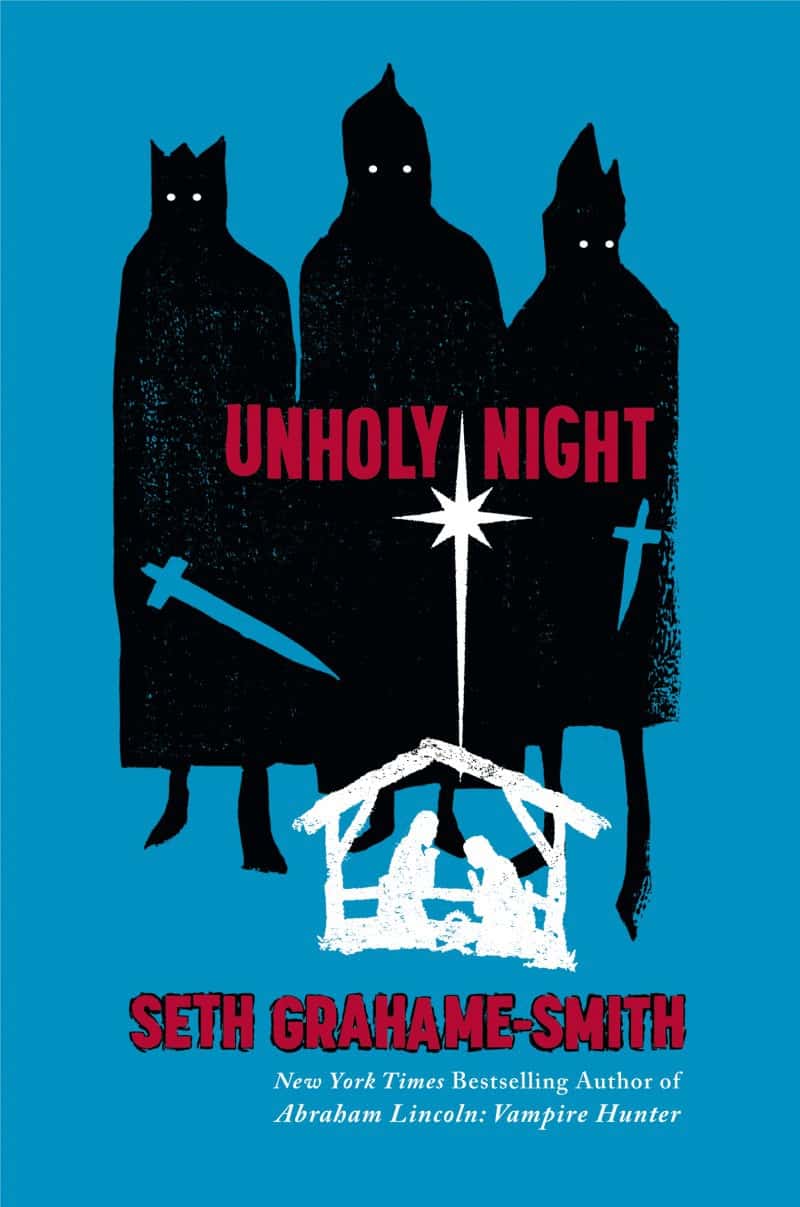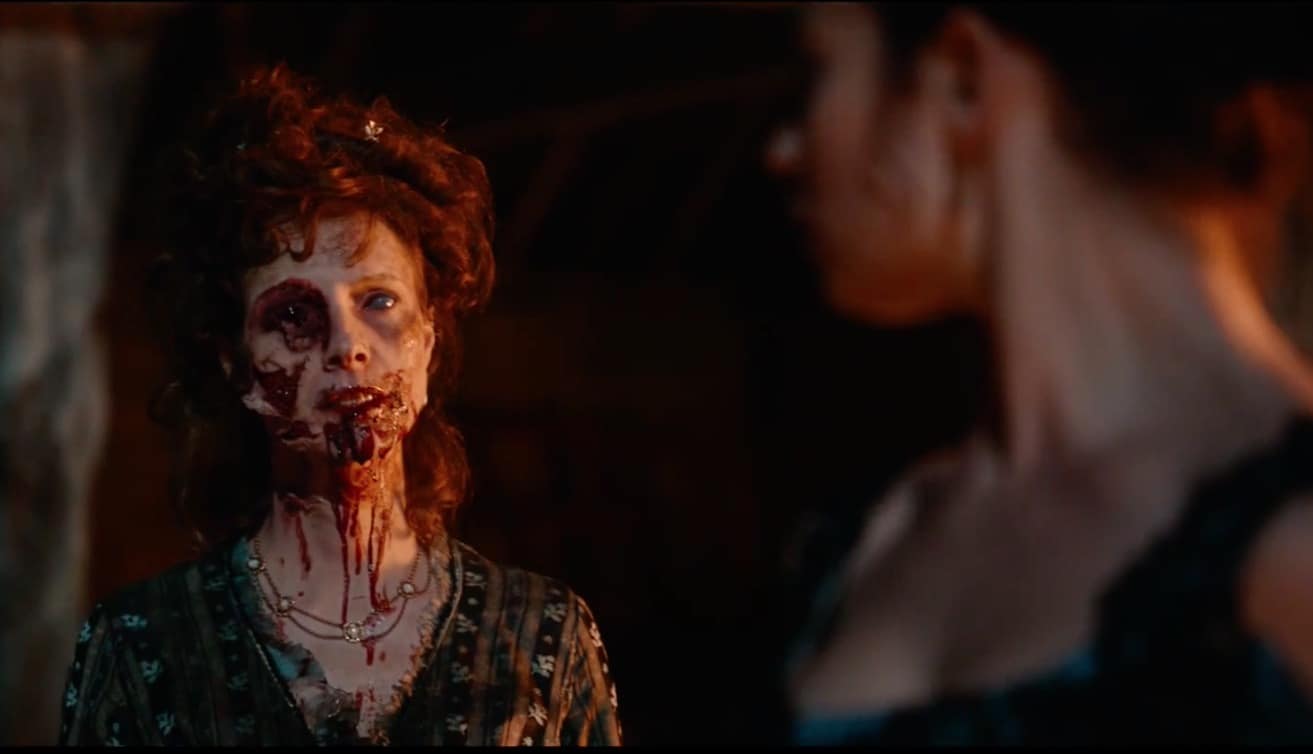
Book Review: ‘UNHOLY NIGHT’ by Seth Grahame-Smith
If you are anything like me – and you must be or you wouldn’t be reading this website – you were counting the days until the release of Abraham Lincoln: Vampire Hunter. I don’t need to tell you why I was so excited, but I will because I have a word quota to fill, so here are just some of the reasons: Timur Bekmambetov, American History, Tim Burton (Just him! No Johnny!), Stovepipe hats, Rufus Sewell as a big baddie, Alan “Two-Dick” Tudyk, an R rating, and Abraham. Lincoln. Vampire Hunter.
Seth Grahame-Smith, who penned both the original Vampire Hunter novel and the screenplay, has put out a new book to tide fans over before the film got released (It hit book shelves on April 10). Unholy Night, with its lovely Tarantino-esque dust jacket, presents an unedited version of The Greatest Story Ever Told in a lot of ways. This time though, all the cool parts are left in. If you were a good ‘Sunday School kid’ – like I was – or if you ever watched the California Raisin’s Christmas special in the 80s, you may remember the mysterious cloaked figures bringing Baby Jesus gifts. What this book supposes is that maybe there was something else going on with those three wise men.
Balthazar, a.k.a. the Antioch Ghost, has made quite a name for himself as the most loved thief in Judea, until the day he pisses off the wrong woman and finds himself in front of King Herod. Herod, already in a foul mood due to his syphilis, throws him in the dungeon with two other thieves. They escape, disguised as three priests, and on their way out of the city, seek shelter in a stable. There, they startle a carpenter named Joseph, his firecracker of a wife, Mary, and their newborn son. Herod isn’t too pleased about this escape, but his mood worsens when he’s told a mysterious star has appeared in the east, signaling the arrival of a new king, and an end to Old Herod. With the help of a Roman army, led by a young Centurion named Pilate (yes, that Pilate), he orders the death of every newborn boy in Judea. Seeing the murder around him, Balthazar goes from fugitive to fighter.
Night does feature a bit of old fashioned biblical terror, including flesh-eating locusts and magi who can raise the dead. Also, we get to see what happens when you desecrate some very holy land of some very observant Jews, and that is terrifying. But Night is more of a ‘spaghetti-western’ than a supernatural tale like Abraham or Pride and Prejudice and Zombies – a well constructed one – with Eastwood-worthy characters. Balthazar especially is extremely interesting, growing from criminal to hero as he goes through the emotions of self-interest and skepticism upon reaching Joseph and Mary to later exhibiting anger at seeing the massacre of children. Mary and Joseph are believable also, neither self-righteous nor completely helpless, as two new parents struggling with their faith without thought of abandoning it.
And that is what’s so surprising about the book: how non-controversial it is. It doesn’t paint an unflattering picture of the birth of Christianity, but it doesn’t preach, either. It’s something I could recommend to both my parents, and you, dear readers (you godless heathens, you), because in the end it’s simply a good story about normal people in a tight spot. In fact, the only real weakness in this book is its neutral sentimentality. I feel the book is strongest in the beginning, where there was more humor and action. The book never really feels like the epic its supposed to be until the epilogue, which, while satisfying, is too brief. I also think it’s a shame the other two wise men/thieves were not explored more, as their initial introductions showed such promise.
The good far outweighs the bad here, and while it may not fill you up, it will at least tide you over until the next big-screen adaptation of one of Smith’s literary works.

